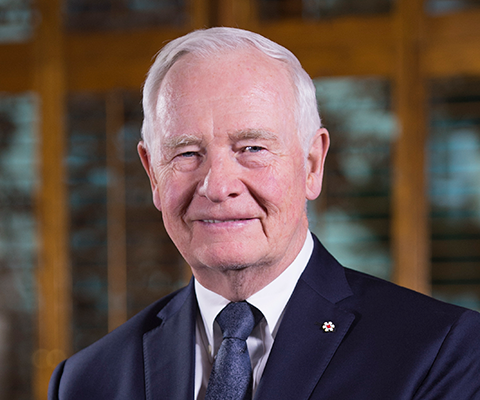Education shouldn’t be a zero-sum game

This op-ed was originally published on the Academica Group’s Rethinking Higher Ed Forum on April 15, 2015.
By Andrew Parkin, former director general, Council of Ministers of Education, Canada
Are we pushing too many young people to go to university?
A new paper by Ken Coates argues that a preoccupation with universities and a tendency to overlook the more job-relevant training offered by colleges and polytechnic institutes is leading too many young Canadians astray. The paper, published at the end of March by the Canadian Council of Chief Executives as part of its “Jobs and Skills for the 21st Century” initiative, grabbed headlines because of its suggestion that we should cut university spaces by 25 to 30 percent and refocus our attention on producing more career-ready college graduates.
There is nothing wrong with shining the spotlight on Canada’s college sector and its success in aligning programs with job opportunities. There is a problem, however, with arguing that, if we want more college graduates in order to address anticipated skills shortages, we need fewer university ones. If the goal is to better align education with the needs of the labour market, we need to do better than engage in a zero-sum trade off between the college and university sectors.
As a first step, it is worth pointing out that Canada already stands out internationally because of its of its exceptionally strong college sector; by international standards, however, its university sector is comparatively small.
Canada ranks third in the OECD in terms of the proportion of its young adult population (age 25 to 34 years old) that has attained a tertiary education (whether college or university). This respectable position, however, is the result of the fact that the proportion of young Canadian adults with a college degree is very high, at 25 percent. This is good for second place in the OECD, behind only Korea.
By contrast, Canada ranks only 17th in the OECD in terms of the proportion of young adults with a university degree (32 percent). True, more young Canadian adults have a university degree than a college diploma. But is also true that in no other country is the difference between the relative size of the two groups of graduates as small.
This doesn’t mean that we could not benefit from even more college graduates. The point is simply that Canada does not look at all like a country that has over-emphasized university education to the detriment of colleges.
Fortunately, there is a more sensible way to boost college enrollment than by cutting university spaces. And that is to focus on the one in three young Canadians who are currently navigating the labour market without the benefit of any form of postsecondary education or training whatsoever.
If there is any group in Canadian society that is “too large” in the context of today’s knowledge intensive economy, it is the 32 percent of young Canadian adults who either never finish high school, or who end their formal education and training once their high school studies are complete. These are the young Canadians whose skills are least likely to meet the needs of employers, and who are most at risk of unemployment and under-employment.
Nothing made this clearer than the experience of the most recent recession. Unemployment spiked in the late 2000s, but the worsening job market affected those with and without a postsecondary education quite differently.
Jobs for those age 25 to 54 with no education beyond high school dropped by over 3 percent between 2008 and 2010; for those with a trades certificate or college degree, employment fell by less than one percent. But for those with a university degree, the number of jobs increased by 5 percent, representing a net gain of over 160,000 jobs. In fact, the economy added jobs for university graduates in this age group in every year during and after the recession period, including the years when the overall unemployment rate increased.
Similarly, the unemployment rate for those age 25 to 54 with neither a college diploma nor a university degree jumped three percentage points from a low of 5.3 percent to a high of 8.3 percent during the recession. By comparison, the rate for college graduates rose only 2.1 points, and only 1.8 points – from 3.5 to 5.3 percent – for university graduates.
The Canadian experience is typical of that of most industrialized countries. As the OECD pointed out in a recent study of youth in the aftermath of the economic crisis, the burden of economic adjustment has fallen disproportionately on youth with lower levels of education. And it is no stretch to anticipate that the same will be true in the case of the adjustments underway right now in the Canada’s oil-producing regions as the petroleum industry reacts to new market realities.
If we really want to focus on creating a better fit between education and the labour market and producing “career ready” graduates in an ever more demanding economy, the implication is clear. The problem is not an over-emphasis on universities but an under-emphasis on any and all forms of postsecondary education and training. This is the type of career information that students planning for their future need to hear.
This brings us to the most misdirected part of Coates’ argument, which is his claim we are doing a disservice to too many young Canadians by encouraging them to set their aspirations too high. This, he complains, only leads to universities having to cope with classrooms that include “marginally talented” students who are “ill-suited” to university studies.
Certainly, one way for universities to respond to the growing numbers and more diverse backgrounds of students is to pull their doors more tightly shut. Thankfully, most realize there is a much better way, which is to introduce new programs and services and re-emphasize teaching quality in order to meet the needs of these students – and of the employers who will eventually hire them.
In the 21st-century, all institutions and businesses have had to adapt and innovate to stay relevant and competitive. It is not clear why Coates—unlike so many of his peers—believes that the university professoriate should be an exception to this rule.
About Universities Canada
Universities Canada is the voice of Canada’s universities at home and abroad, advancing higher education, research and innovation for the benefit of all Canadians.
Media contact:
Lisa Wallace
Assistant Director, Communications
Universities Canada
[email protected]
Tagged: Co-ops and internships, Study abroad




